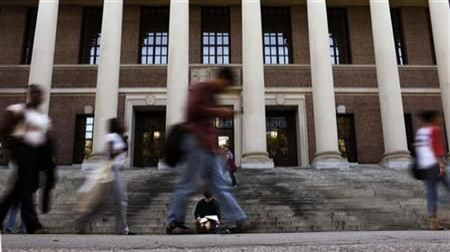Survey Finds Cheating Among Students at All GPA Levels

Over a third of undergraduate students admitted to some form of cheating at one of America's top research universities, according to a survey published November in the journal Science and Engineering Ethics.
Students surveyed at the University of California San Diego shared a common perception that everyone is doing it, a notion that contributed to the cheating prevalence, said Tricia Bertram Gallant, an academic integrity coordinator at the public university and lead author of the survey.
Psychologists call this phenomenon normative thinking. About 91 percent of students surveyed reported that students will do what it takes to get the assignments done and get the grade.
Gallant and colleagues compiled data from 3,367 physics lab students who responded to the survey. The questionnaire asked participants if they had received unpermitted help, fabricated/falsified data in physics labs, copied all or some of another's physics lab report, or turned in a physics lab report previously submitted by another student.
The survey targeted students who planned to apply for professional programs in health sciences, such as medical and dental school. Researchers divided the survey participants into four categories, based on the likelihood that they would be accepted to the graduate program of their choice.
The researchers expected to find more cheating among the top-performing group - and at the minimum at least some students with excellent grades cheated.
Not so. As it turned out, the overall cheating rate was similar to that found in other studies, but the types of cheating and stated reasons for cheating were all over the map. Researchers uncovered one trend among the cheaters: the perception that teaching assistants either ignored or didn't care about cheating.
The perception that teaching assistants are ignoring cheating is particularly disturbing, Gallant wrote in her conclusion. We do have to ?nd a way to make the work done in classroom laboratories more relevant, interesting and engaging to all students, regardless of their aspirational goals.
© Copyright IBTimes 2024. All rights reserved.





















